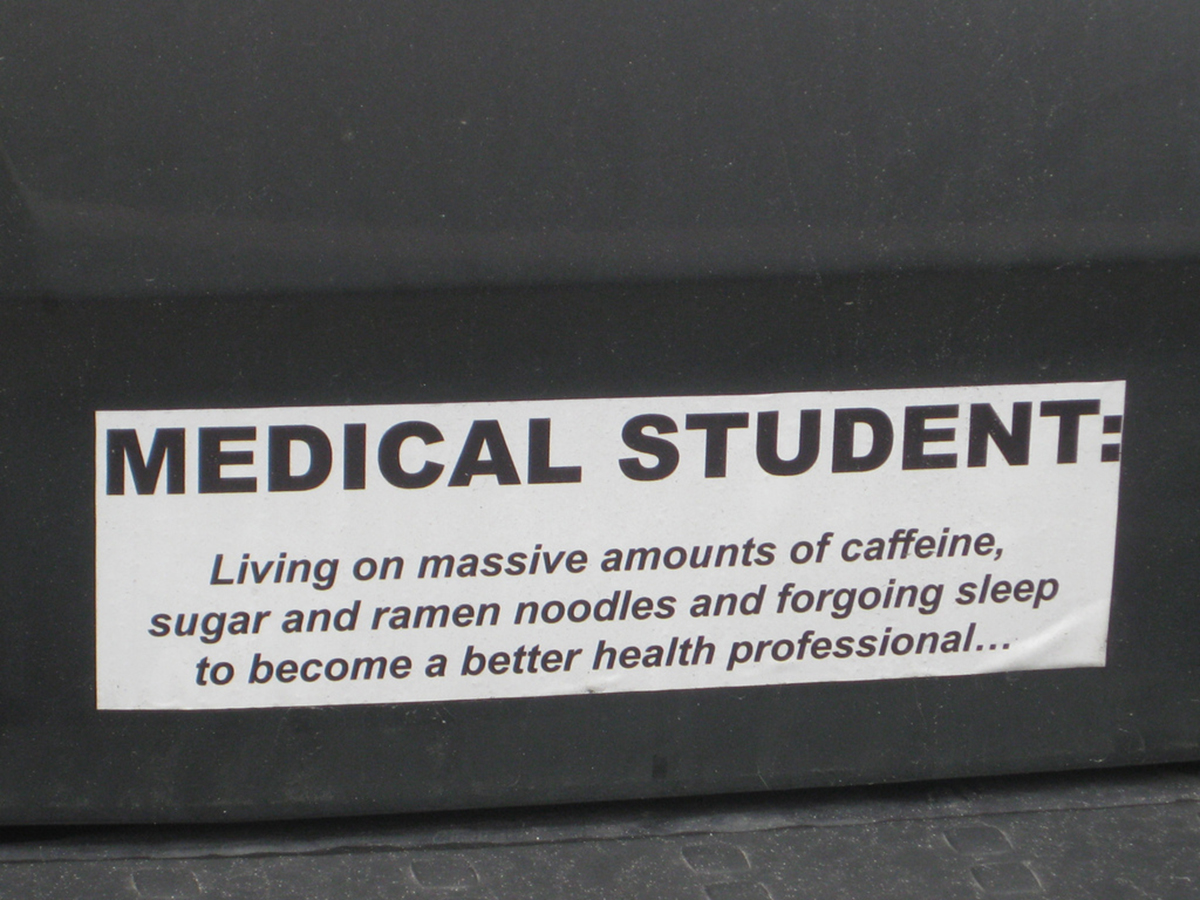Table of Contents
The system for training doctors in the United States is not as harsh as it once was. Since 2003, American medical residents are no longer required to work more than 80 hours per week. This is the equivalent of 12 hours a day, but it allows some time for sleep, family life, socializing, exercise, and all the things doctors themselves need to do to maintain good health. In the European Union, medical residents are limited to 52 hours in their work week.

Medical students in the United States take on four patients until they graduate, but as soon as the title "M.D." is added to their names, they immediately have to start seeing 10 patients a day. The new doctors often suffer severe fatigue, and make serious mistakes, which are usually immediately caught by their supervisors. The command structure of the hospital is hierarchical, with authority centralized like stones in a pyramid, and new doctors are at the bottom of the pile.
Most medical residents have access to confidential counseling services, although these may be on site. Teaching hospitals have tried everything from therapy dogs to trips to the beach to enhance their residents' mental health, but the nothing in the system helps with the American expectation of "equanimity."
Originally taught in medical schools by its Latin name "aequinimitas," equanimity refers to the expecation most Americans have that their doctors should be mindful, in control, unmoved by emotion, unflappable. The term means "imperturbality," and reflects a very deep demand that doctors remain outwardly calm at all times. The originator of this concept, the celebrated physician Sir William Osler of Christ College Oxford and Johns Hopkins medical schools in the early twentieth century, explained that doctors should develop "presence of mind under all circumstances, calmness amid storm, clearness of judgment in moments of grave peril. In full development, it has the nature of a divine gift, a blessing to the possessor, a comfort to all who come in contact with him." The problem is, doctors by no means always feel that way.
See Also: Doctors Hit By High Fees For "Virtual Credit Cards," Why You Should Care
What can you as a patient do to get the best medical care from a new doctor, a resident, or a medical student? Here are some suggestions:
- Know that the resident taking care of you sometimes may be "faking it 'til he or she makes it." Be polite, and be patient, but do not tolerate pronouncements from students or residents who have not yet taken time at least to read your chart and who have never examined you. In the long run, it's kinder to demand good treatment than it is to tolerate slipshod treatment.
- Realize that older residents like to boss around younger residents. Don't rely too much on a young resident's assessment of how long you will have to stay in the hospital or whether you will have to be admitted at all.
- Don't be afraid to ask your doctor about your treatment if you don't understand it. Ask foreign-born residents to speak slowly, or to spell words they cannot pronounce.
- Don't consent to procedures that don't make sense to you. If you are well enough to object, you are well enough to give informed consent.
- But finally, be kind. Your doctor is probably more acutely aware of his or her limitations than you are. Don't be impatient, don't be dishonest, and let your doctor give you the best possible medical care.
- Goebert D, Thompson D, Takeshita J, Beach C, Bryson P, Ephgrave K, Kent A, Kunkel M, Schechter J, Tate J. Depressive symptoms in medical students and residents: a multischool study.Acad Med. 2009 Feb
- 84(2). 236-41. doi: 10.1097/ACM.0b013e31819391bb. PMID: 19174678.
- Photo courtesy of DIBP Images by Flickr: www.flickr.com/photos/diacimages/5774362633
- Photo courtesy of Sylvar via Flickr: www.flickr.com/photos/sylvar/6955985416


Your thoughts on this